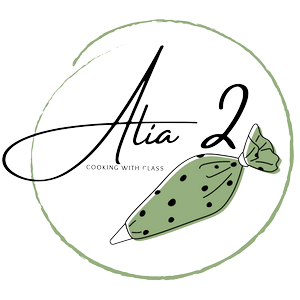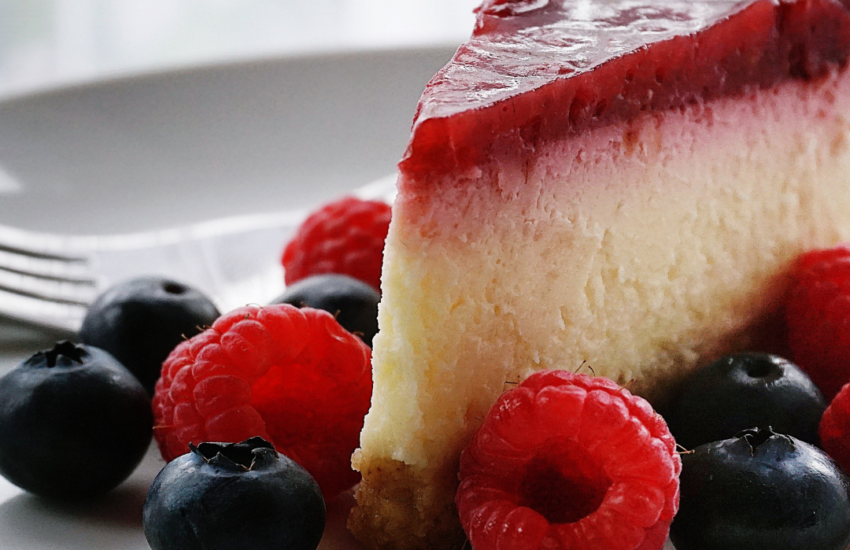Get Creative With These Cake Decorating Ideas
Learn how to unleash your inner artist and create stunning cake designs with our guide to cake decorating.
In this blog post, we will teach you:
- The art of smooth frosting with our expert tips on buttercream techniques.
- The secrets of sculpting and shaping edible art with fondant.
- Advanced piping techniques to create beautiful borders and decorations.
- How to choose the right colours and achieve stunning visual effects.
- How to transform ordinary cakes into works of art with our themed design ideas.
Get ready to amaze your friends and family with your newfound cake-decorating skills!
Buttercream basics
Buttercream frosting is a staple in the world of cake decorating, providing a delectable and versatile base for your creative masterpieces.
The key to achieving the perfect buttercream lies in the careful selection and blending of ingredients. Butter, sugar, and a touch of flavouring come together to create a rich, creamy frosting that melts in your mouth. The secret here is to use unsalted butter, as this will allow you to control the saltiness of the buttercream and allow the true flavours of your ingredients to shine through. It’s also important to avoid over-mixing, as this can cause the frosting to become grainy and lose its smooth texture. Instead, mix until the ingredients are fully combined and the frosting reaches a spreadable consistency.
The next step is to achieve a perfectly smooth frosting finish. Start by using a metal spatula to spread the frosting evenly across the cake. Work in small sections, applying thin layers and smoothing as you go. If you encounter any bumps or imperfections, don’t worry – simply use the spatula to gently even them out.
To take your buttercream skills to the next level, master different frosting techniques. Simple swirls can add a touch of elegance, while intricate rosettes and shells create a stunning visual impact. With practice, you’ll be able to create beautiful borders, flowers, and other decorative elements that will transform your cakes into works of art.
Remember, practice makes perfect! Experiment with different buttercream recipes, flavours, and techniques until you find the ones that suit your taste and style.
Fondant fantasies
Fondant can be used to achieve a flawless cake finish or to create intricate edible art, such as flowers and characters.
To begin with, you will need to knead the fondant until it is smooth and malleable. Once the fondant is ready, you can start shaping it. You can use your hands, a rolling pin, or fondant cutters to create different shapes. If you want to create a smooth finish, you can use a fondant smoother.
Fondant can be used to create a variety of different cake designs. You can use it to cover the entire cake, or you can use it to create accents and decorations. If you are feeling creative, you can also use fondant to create 3D sculptures and create edible art.
Here are some tips for working with fondant:
- Keep the fondant covered when you are not using it to prevent it from drying out.
- If the fondant becomes too dry, you can add a little bit of water to it.
- If the fondant becomes too sticky, you can add a little bit of cornstarch to it.
- When you are finished working with fondant, store it in an airtight container.
With a little practice, you will be able to create beautiful and impressive cake designs using fondant. So, let your creativity run wild and explore the endless possibilities of fondant!
Piping perfection
Take your cake decorating skills to the next level with advanced piping techniques.
Royal icing is a staple in the cake decorator’s toolkit, and with the right consistency and a steady hand, you can create intricate and elegant designs. By using different piping tips, you can achieve a variety of textured borders and mesmerizing patterns. These piping tips come in various shapes and sizes, allowing you to create anything from delicate flowers to intricate geometric designs.
You can also explore the world of 3D piping and bring your cakes to life. Learn how to create sculptures, such as flowers, animals, and even miniature scenes, that will captivate and amaze your guests. This technique requires patience and precision, but the results are truly breathtaking.
Ombré and gradient effects can also add a touch of sophistication to your cakes. By gradually transitioning between different shades of the same colour, you can create a fresh, modern design. This technique is perfect for creating elegant wedding cakes or trendy drip cakes.
Perfect your skills in creating lifelike flowers and foliage using buttercream. With a bit of patience, you can transform your buttercream into delicate petals, lush leaves, and blooming flowers. These realistic decorations will add a touch of nature and charm to your cakes, making them look like works of art.
With practice and dedication, you can master these advanced piping techniques and elevate your cake-decorating skills to new heights.
Creative colour palettes
Creative colour palettes are essential for achieving visually stunning cake designs. Understanding the basics of colour theory will help you create harmonious and eye-catching combinations. The colour wheel, a circular diagram representing colours and their relationships, is a valuable tool for cake decorators. It consists of:
- Primary colours (red, yellow, and blue)
- Secondary colours (orange, green, and purple)
- Tertiary colours (mixtures of primary and secondary colours)
Complementary colours, which are opposite each other on the colour wheel, create vibrant contrasts, while analogous colours, which are next to each other, create soothing, monochromatic looks.
The type of food colouring you choose also impacts the final result. Gel colours are known for their concentrated pigmentation and are ideal for achieving bold hues. Liquid colours are versatile and easy to blend, making them suitable for creating softer shades and watercolour effects. Powdered colours are best for dusting cakes and adding subtle highlights.
Beyond basic colour theory, experimenting with advanced techniques can elevate your cake designs. Marbling involves swirling different colours together to create a mesmerizing, multi-coloured effect, whereas splatters add a touch of whimsy and texture, and stencils allow for precise, intricate patterns. Airbrushing, a technique that uses an air compressor to spray food colouring, also opens up endless possibilities for creating gradients, ombre effects, and realistic textures.
When choosing a colour palette, consider the theme and overall aesthetic of the cake. For instance, a child’s birthday cake might include bright, playful colours, while a wedding cake would benefit from paler, more elegant hues. Your colour choices should also complement the cake’s flavours and textures, creating a cohesive and visually appealing dessert.
Remember, practice is key to mastering cake decorating and achieving stunning visual effects. Experiment with different colour combinations, techniques, and themes to discover your unique style and create cakes that are both delicious and visually captivating.
Themed masterpieces
Transform cakes into unique works of art by using themed designs.
Cakes inspired by pop culture can be a fun and creative way to show off your passion. You can create cakes based on your favourite movies, TV shows, video games, or books. For example, you could make a cake that looks like a character from your favourite movie, or a cake that is decorated with the symbols from your favourite TV show.
Fairytales and fantasy are another great source of inspiration for themed cakes. You can create cakes that look like castles, dragons, or princesses. You can also create cakes that are based on your favourite fairytales or fantasy stories. For example, you could make a cake that looks like the gingerbread house from the story of Hansel and Gretel, or a cake that is decorated with one fo the characters from the Lord of the Rings.
Special occasions are also a great time to make themed cakes. You can create cakes for birthdays, anniversaries, and graduations. For example, you could make a cake that is decorated with the couples anniversary data and their favourte colours, or a cake that is shaped like a graduation cap.
Parties or events are also a great opportunity to make themed cakes. You can create cakes for Halloween, Christmas, Easter, or any other party or event. For example, you could make a cake that is decorated with Halloween candy, or a cake that is shaped like a Christmas tree.
All in all, themed cakes are a great way to show your creativity and can also be a lot of fun to make. So next time you’re looking for a creative way to express yourself, consider making a themed cake.

